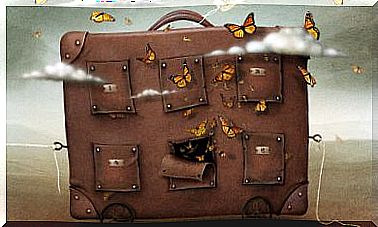Problems With Gambling Or Gambling

Gambling is considered one of the impulse control disorders, according to the DSM psychological reference manual. Here are 9 possible behaviors that may be occurring in someone you know, or even yourself. If these behaviors occur, or at least 5 of them, we can talk about a problem with gambling.
1) If thoughts revolve around the idea of playing, recurring and frequent wishes to play.
2) More and more time is needed to satisfy the pleasure in the game. Before with less time the person was happy, now he needs to increase that time.
3) The person who has problems with the game, may have repeated attempts to want to quit the game, but they do not succeed.
4) Gambling is used as a way to escape from problems and reduce symptoms of anxiety and sadness.
5) When you try to stop gambling or are not gambling, you have feelings of irritability and a persistent desire to gamble and restlessness.
6) You usually lose money and try to keep playing to see if you get it back.
7) He tends to lie to those around him.
8) Illegal acts (theft, fraud, etc.) can be carried out in order to get the lost money.
9) You can lose loved ones, whether they are a partner, friends, etc.
Types of players
Gamblers tend to have social, family, economic and legal problems, since most of the time they spend in gambling, leaving aside other important areas of life. There are several types of players: we can differentiate the social player (who is the one who does not have problems with the game, enjoys it and can leave it whenever they want), the professional player, who knows perfectly not only to control the game but also knows strategies to win money, the problem gambler, who is the player who already plays almost daily, and who already receives the first complaints from people around him and from contacts, although the situation is not completely out of control yet. Finally, the pathological gambler who is one who has all or most of the areas of his life affected.
The Pathological Gambler
The pathological player can go through a series of phases:
1) Pre-contemplation phase : the player does not think he is ‘in’ a problem, he enjoys playing and does not listen to the advice of others.
2) Contemplation phase : the person already has some problem or another and begins to think and consider possible ways to seek help.
3) Phase of preparation for action : the person already has many problems, has even been left alone, has tried to stop playing, cannot and seeks professional help to get out.
4) Final phase (recovery or relapses).
Remember that psychological and medical evaluations can only be carried out by professionals. Don’t diagnose yourself. If you meet the diagnostic criteria or are in any of the phases, remember that problems can be overcome with professional help. In many cases combining psychological therapy with medicine. In the case of psychology, problem solving techniques, relapse prevention, cognitive therapy, relaxation and exposure techniques are used.
The first step to solving a problem is to recognize that you have it.









